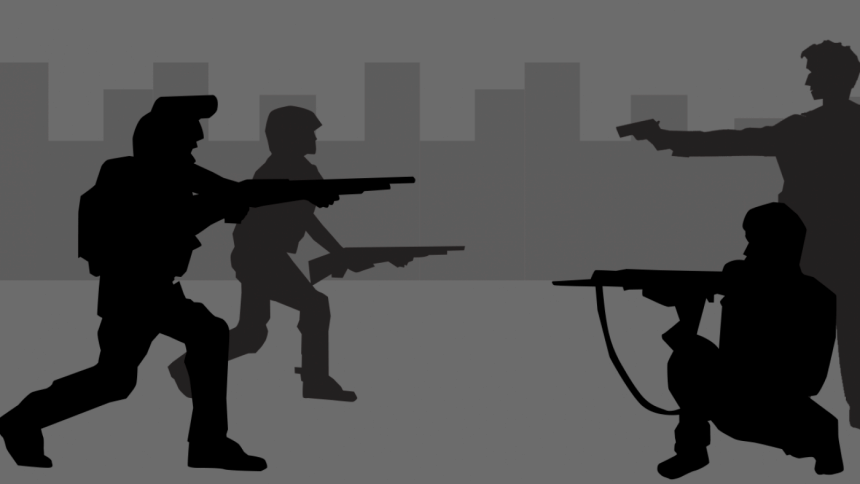How (not) to fight drug

We tried to be in touch with them to get to know how they react to the ongoing anti-drug drive. All of them have been yaba addicts for a long time. Their phones are switched off.
Finally, we got hold of one. He sounded scared. A little disoriented.
“I am keeping myself low,” he whispered. “I am scared of being caught and killed.” And then he cuts off.
Unfortunately for him, he is today regarded as a criminal instead of a person with health issues who needs treatment, not punishment. He is the end user, one who takes the drug. It is millions like him who make up the yaba market. They create the demand and so the supply continues -- through a long and convoluted chain.
So, when the current drive only targets the supply side without any regard to a concerted move to curb the demand and when the drive takes a blanket view that anyone in the yaba chain is a criminal with no plan to treat and cure the addicts, skeptics would have a second opinion.
If you do not cut the demand, can the supply be stopped? If this is the questions then the drive looks segregated and partial, likely to bring partial success at a prolonged effort.
Across the world, drug (yaba included) problem is not regarded as a solely criminal affair but a bigger health issue. While countries focus on fighting the drug cartels, more successful countries have focused on the users -- the addicts -- to put them back on track through health care and rehabilitation.
The more successful countries are today decriminalising drug use. And that is helping them fight the menace, statistics show.
But to develop this argument further, let's face one thing flatly -- there is not a single country not facing the drug problem. It's all about a case of magnitude that makes a success story.
The US, Thailand and the Philippines can be lumped on one side of the spectrum, which have tried to control drugs with full violence.
The US started its new approach since Richard Nixon's time in the 1970s and continues with Donald Trump who full-heartedly supports what Duterte of the Philippines is doing -- so far 12,000 dead in its anti-drug drive.
The Philippines, despite earning a bad name for its violent approach, has so far been successful in its campaign that started in 2016. But drug is a long story and it is unwise to come to a conclusion by judging a short success.
The US drug policy failed spectacularly. A simple figure proves it correctly -- in 2016 alone 64,000 died in drug overdose, a lot more than the US body count in Vietnam War. And yet there are more people incarcerated in the US for drug related cases than anywhere in the world.
Thailand had also waged a violent war against yaba in 2003 and killed some 2,800 people. After the initial success, yaba has come back. Its government has publicly conceded that the country's bloody war on drugs has been “wrong the whole time”.
Singapore, Malaysia, Vietnam and China also wanted to deal with drugs with iron hands, executing drug peddlers and users alike. All of them have harsh laws to deal with drug-related crimes.
Singapore executed 247 people for drug crimes between 1991 and 2000. In China, executions of drug convicts were often a public event. Thirteen percent of its death penalties handed down are in drug cases.
But did that bring any recess? Figures will tell the story again. Singapore arrested 3,089 drug abusers in 2016, 40 percent of them new abusers, up from 1,127 arrests in 2006. In Malaysia, the number of newly registered drug users doubled in 2016 from 2012. In Indonesia, which so boastfully executes drug criminals, also saw an almost doubling of drug addicts between 2011 and 2015.
These countries have of late got the message from the figures and gone on a retrospection of their act ions. After 2,800 deaths, Thailand is now talking about drug legalisation and rehabilitation strategy.
On the other end of the spectrum are the countries like Portugal, Ecuador, Uruguay, Switzerland, the Netherlands and even Mexico, a country so beset by drug problem until a few years ago.
And what is the lesson from them?
All these countries have decriminalised drug use from the realisation that for a drug user it is a health issue and not a matter of morality. It is simply like if you have diabetes you should not blame the person but threat the disease.
Portugal was the first EU country to decriminalise all drugs that has resulted in not only a decline in arrests but also in illegal drug use. It has put in a lot of resources behind rehabilitation while still making drug trafficking a punishable offence. It has put in place a “dissuasion commission” to talk to drug consumers and counsel them.
Ecuador was once ravaged by America's war on drugs. Now it has made a law to put into place a system for treatment and rehabilitation for addicts. At the same time, it has moved to decriminalise drugs.
Some countries such as Uruguay and Portugal have even gone as far as to supervised drug taking to reduce risks of HIV. Uruguay has legalised marijuana and the government sells cannabis at a fixed price.
Czech Republic and Switzerland have very effective counselling and “harm reduction” programmes. Czech citizens face small fines for possession of any drugs for personal consumption and the government prosecutes major drug trafficking and distribution while offering rehabilitation. It has achieved reduction of drug use and overdose.
The world over, the call from physician organisations, including the British Medical Association, is for a change in the way the society treats drug users and to make treatment, rather than punishment a priority.
Even the UN has learnt it the hard way. The UN has issued three drug conventions, the first in 1961, that ban the use of illicit drugs. It was thought that the ban would reduce the use of drugs, but far from it drug use has grown substantially worldwide. So, the UN recently reversed its thinking and in April 2016, the UN Office on Drugs and Crime stated that drug policies must be “evidence-based” and designed to improve public health, not undermine it.
Ruth Dreifuss, chair of the Global Commission on Drug Policy, told the Medscape Medical News that the European experience clearly shows that physicians are one of the main groups that can bring about a change in attitudes about drug use and possession. She noted that a wide range of therapies are available to treat drug-dependent patients.
Unfortunately for Bangladesh, laws are quite harsh for users and they are seen more as criminals rather than people with health issues. A drug consumer can get a term between two and 10 years.
And rehabilitation facilities are enormously inadequate. For a country with an estimated 60 to 70 lakh drug addicts, treatment facilities exist only for 2,800 people both in public and private facilities. The attitude of the state is further exposed if one considers that the government facilities include only 115 beds in four centres.
What Bangladesh needs badly is a two-pronged strategy -- cutting supply, meaning dealing strictly with traffickers and dealers, and at the same time rehabilitating the addicts. Singapore can be a bright example to emulate. From its single focus of capital punishment to all, it has segregated the addicts from the traffickers. For the traffickers, the penalty is capital punishment.
Singapore runs a massive anti-drugs public education programme in schools. Addicts are given two chances in a drug rehabilitation centre. If they can kick their drug habit, they will not have any criminal record. But those who will not give up drugs will go to prison, where they are put on general rehabilitation programmes to help them reintegrate into the community.
The result? The number of drug abusers has decreased by two-thirds in a decade.
That makes a lucrative figure for Bangladesh. An example worth trying.

 For all latest news, follow The Daily Star's Google News channel.
For all latest news, follow The Daily Star's Google News channel. 







Comments